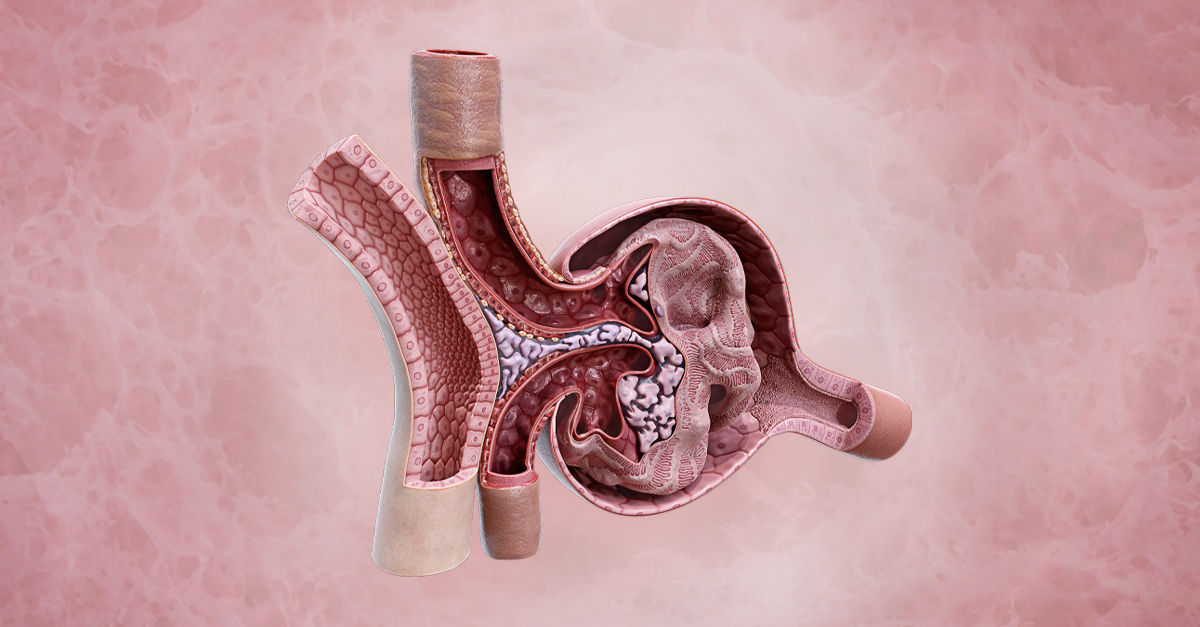
Exciting news! Complete Anatomy is launching two new detailed models this April. Go beyond the gross anatomy and right down to the microscopic level with our brand-new models, the eukaryotic cell and renal corpuscle. Explore the different organelles and understand their functions and delve into the intricate physiological connections between these structures and their larger systems. Ready to learn more? Let’s zoom into the renal corpuscle below.
One of the main functional components of the kidney, the renal corpuscle, is the blood filtration unit of a nephron. It is composed of two main structures, the glomerulus and the Bowman’s capsule. The glomerulus is made of capillaries that contain cells that regulate blood flow and filter out proteins or other molecules trapped in the basement membrane. The Bowman’s capsule is composed of simple squamous epithelium that contains an inner layer of podocytes. These podocytes have foot processes that wrap around capillaries to help form filtration slits.
You can learn the different components of the renal corpuscle’s microstructure and relate it to our other detailed model of the kidney lobe. Fade or remove structures to get a better view of how these structures look in 3D and expose what lies underneath. Each selectable structure has written content attached to it to help explain structure, function, and clinical correlates.
Understanding the structure and function of the renal corpuscle can then help you understand glomerular disorders such as glomerulonephritis or glomerulosclerosis. Glomerulonephritis is used to describe inflammation of the glomeruli and glomerulosclerosis is scarring/hardening of the glomeruli. These disorders fall under conditions that can cause chronic kidney disease, which affects more than 1 in 7 adults in the US.
It’s time to take your anatomy knowledge to the next level with Complete Anatomy’s new detailed model of the renal corpuscle!
